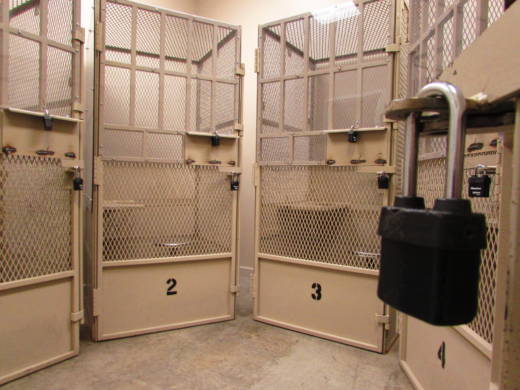He wrote that in one disturbing example, a woman removed, then ate her own eye four hours after an evaluation by a psychologist and being placed on suicide watch.
"Multiple subsequent psychiatrists, including headquarters psychiatrists, who heard about this event, agreed that medications and forced medications had been needed, but the psychologist evaluating the patient did not call the psychiatrist," Golding wrote.
Official reviews of the incident ignored doctors' opinions about the case and found a failure to contact a psychiatrist or provide immediate medication "was not a root cause," the report says.
End to Court Oversight Jeopardized
The allegations could derail California's efforts to end decades of court oversight to improve psychiatric care at the state's 34 prisons.
The 1990 case, now called Coleman v. Brown, sought to improve care for prisoners with mental illness. The state has increased spending and reformed inmate mental health care over the 28-year case.
But Golding's report has cast doubt on any near-term end to court oversight, according to Michael Bien, an attorney representing mentally ill inmates in the case.
"The whistleblower report from Dr. Golding blows all that progress out of the water, at least until we fully understand the extent of his allegations," Bien said. "In his view, the mental health care system was operating way below any standard, and in fact in a dangerous way for patient safety. And defendants were representing exactly the opposite. That's very troubling."
Golding wrote that prison officials used a number of techniques to make data about quality of inmate mental health care look better than the reality.
“A prison mental health system needs to ensure that patients see their psychiatrists and other mental health providers on schedule, on time and confidentially, in an office," Golding wrote. "CDCR is not doing that.”
Inmates with mental illness are supposed to see a psychiatrist within a court mandated period of time, that differs depending on the severity of their condition.
Golding asserted that officials exaggerated key measurements of care, including whether psychiatrists kept their appointments with inmates, "as scheduled."
The state reported that in 2018 prison psychiatrists had seen all of one category of inmates — those with the mildest forms of mental illness — 95 percent of the time. But, Golding asserted, the report excluded appointments that were missed or rescheduled. Had those numbers been included, Golding wrote the state's compliance rate would have dropped to 46 percent.
Corrections officials had a policy to "reset the clock" every time a mentally ill prisoner transferred to a new prison, Golding wrote, resulting in inmates going without seeing a psychiatrist for up to nine months.
He wrote the state counts late appointments as on-time and on-time appointments as early. And "brief encounters with patients in the prison yard surrounded by other inmates, three-minute, non-confidential cell side visits" and wellness checks amounting to shouting back and forth through a cell door were all counted as proper medical appointments.
'Broken System of Care'
Golding blamed the distortion on prison leaders:
“CDCR has a broken system of care because information is not accurately reported upon," Golding wrote. "I have documented that CDCR has prevented errors from being fixed, and worse, CDCR has not allowed anyone to know that there has been inaccurate reporting to the courts and to our leadership."
Judge Mueller has said she would soon decide whether to call Golding to testify at a Dec. 14 hearing, and was also considering "areas of potential fraud on the court," according to a record of a recent hearing.
CDCR Spokeswoman Vicky Waters wrote in an email response that the agency "looks forward to a fair and thorough review and hearing of all the facts."
"We worked closely with lawyers representing prisoners, as well as the court appointment monitors, for many years to improve the mental health of inmates," she wrote, "and our dedicated and well-trained staff will continue to provide appropriate care and treatment."

